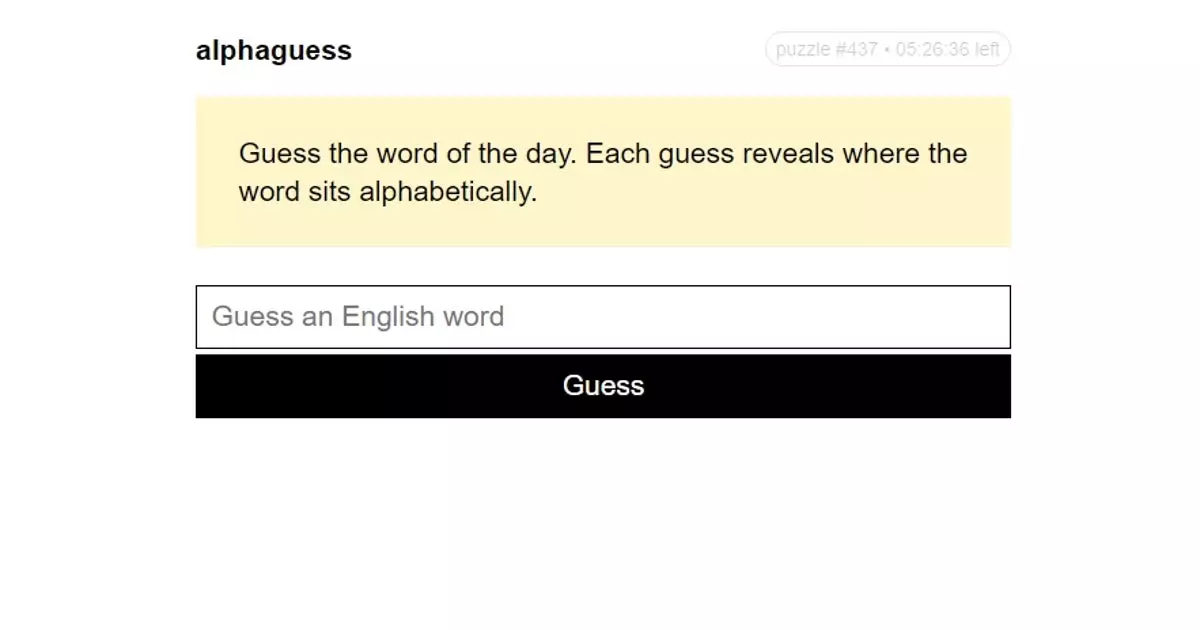In an age where distractions are a mere click away, the emergence of browser-based puzzle games like Alphaguess presents an intriguing phenomenon. Designed to engage users without requiring excessive brainpower, these games offer a tantalizing divergence from our often overwhelming daily tasks. To the untrained eye, they might seem like trivial time wasters, yet they possess a unique capacity to draw in players through simplicity and a feigned depth of strategy. They appeal to a particular craving for light engagement — a soothing balm for anxiety-ridden or monotonous days.
Alphaguess invites players to participate in a straightforward guessing game that revolves around the alphabet. With each incorrect guess, players are guided by the game’s subtle hint system, indicating whether the correct word precedes or follows their entry in the alphabet. This grants users a feeling of gradual discovery, yet the underlying mechanics are deceptively simple. Unlike traditional puzzles that require lateral thinking or clever problem-solving, Alphaguess almost feels like a mere guessing game — the type one might engage in casually with friends during a road trip.
This simplicity, far from being a flaw, contributes to its charm. The allure lies in its daily challenge, where the goal is not only to succeed but also to see how quickly one can deduce the correct answer. The satisfaction of conquering the puzzle often overshadows any frustrations experienced along the way.
Engaging in games like Alphaguess can serve various psychological functions. On one level, these games provide a sense of accomplishment and mastery through repeated interactions. The anticipation of a new word each day and the satisfaction of figuring it out can act as daily motivators, fostering a habit that many players subconsciously treasure. The infinite permutations of possibilities create a stimulating environment that whets one’s appetite for success, even if that victory is a mere seven-letter word.
Furthermore, these games can serve as a moment of respite in a hectic day. Rather than surrendering to various distractions such as social media, players can approach these daily puzzles as a quick mental workout. They offer a cozy, compact package of challenge and enjoyment, appealing to both casual gamers and those who might seek a more structured form of entertainment.
Finding the Balance: Leisure vs. Productivity
Although marketed as productivity mitigators, it is essential to recognize the inherent value these games can provide. However, striking a balance is crucial; while indulging in frivolous puzzles may yield moments of joy, we must be cautious of falling into a rabbit hole that consumes more time than intended. The key is moderation; allowing these light-hearted distractions to breathe life into dull moments without letting them overshadow more significant responsibilities.
The rise of browser-based puzzle games like Alphaguess reveals the complexities of our relationship with productivity and leisure. They bridge the gap between distraction and engagement, offering a delightful reprieve in our busy lives. As we continue to roam the digital landscape, let us embrace these small joys without guilt, recognizing that sometimes, a little diversion can lead to a more balanced, productive day.


Leave a Reply